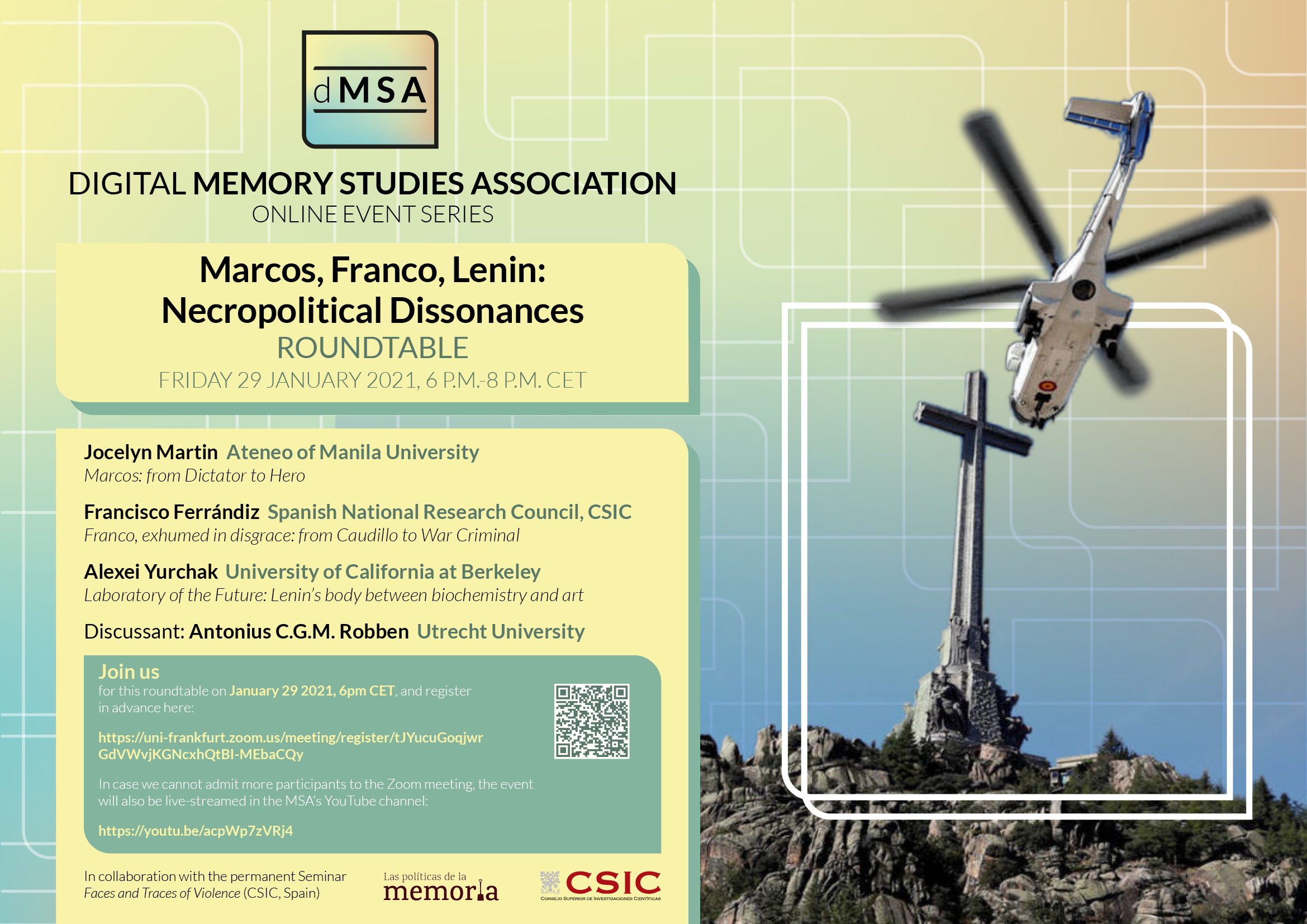Details
At: 29/01/2021 6:00pm, in cooperation with: Las Políticas de la Memoria and the Spanish National Research Council (CSIC) as part of dMSA, the Memory Studies Association’s online event series.
Speakers:
Jocelyn Martin, Ateneo de Manila University
Francisco Ferrándiz, Spanish National Research Council (CSIC)
Alexei Yurchak, University of California at Berkeley
Antonius C. G. M. Robben, Utrecht University (Discussant)
Roundtable Marcos, Franco, Lenin: Necropolitical Dissonances, hosted by: Francisco Ferrándiz
Working at the intersection of political science, ethnographic sociology, and contemporary historiography, Dr Sarah Gensburger specializes in the social dynamic of memory. Since 2015, she has been working on memorialization in the aftermath of the terrorist attacks in Paris, as well as on the social appropriations of the past by visitors at memorials and commemorative sites and exhibitions. In this conversation, facilitated by Prof. Stef Craps and Dr Catherine Gilbert, Dr Gensburger will discuss her 2019 French Voices Award-winning book Memory on my Doorstep: Chronicles of the Bataclan Neighborhood (Paris 2015-2016), which traces the evolving memorialization processes following the 2015 terrorist attacks in Paris and their impact on the local landscape. She will also discuss her new project Vitrines en confinement – Vetrine in quarentena (Windows in Lockdown), which documents public responses to the current coronavirus pandemic from different sites across Europe through the creation of a photographic archive of public space. The conversation will highlight issues around the immediacy of contemporary memorialization practices, the ways in which people engage with their local space during times of crisis, and how we are all actively involved in preserving memory for the future.
